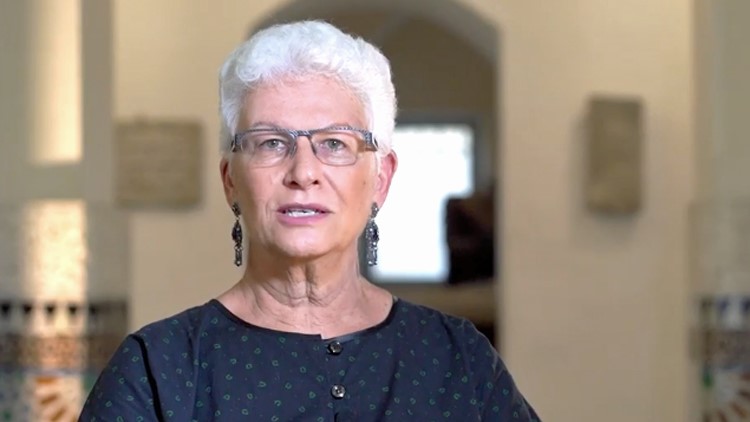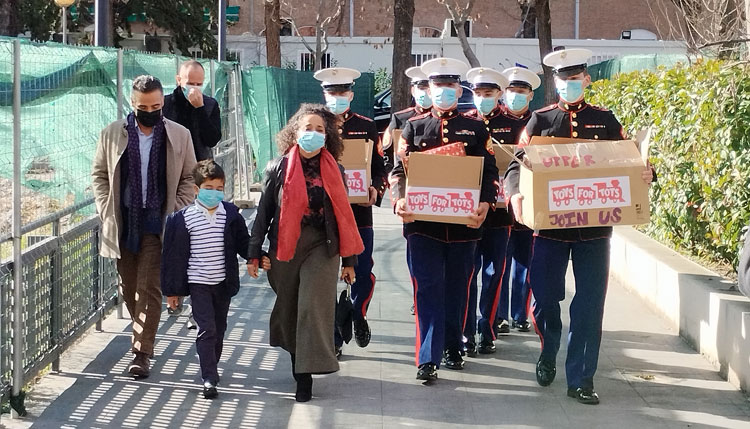The Diplomat
The Israeli ambassador to Spain, Rodica Radian-Gordon, will return to Madrid at the beginning of next week, as announced yesterday by the Ministry of Foreign Affairs of that country, through a statement. The ambassador was called for consultations on November 30, following statements by the President of the Government, Pedro Sánchez, in which he questioned whether Israel was respecting International Humanitarian Law in its military offensive in Gaza.
The statement indicates that the decision has been adopted by the Minister of Foreign Affairs, Israel Katz, upon confirming that there has been “a change for the better” in the statements of the Spanish Government and due to “the importance of the relations between Israel and Spain”.
The decision to return the ambassador has been adopted by the new Israeli Foreign Minister, Israel Katz, who has held the position since January 1.
The Foreign Department specifies that Rodica Radian-Gordon will be back in Madrid “at the beginning of next week” to continue his activity and gain support for Israel’s right to protect its citizens against Hamas and international pressure to achieve the release of the hostages still held by the terrorist group in the Gaza Strip.
In the statement, it is recalled that the ambassador’s call to Jerusalem for consultations occurred after “a series of problematic statements” by senior government officials, in reference, without citing them, to the demonstrations of Pedro Sánchez and some others members of his Cabinet, who were critical of the response given by Benjamin Netanyahu’s Executive to the terrorist attack perpetrated against Israel by Hamas on October 7.
A week before the call for consultations took place, Israel summoned the Spanish ambassador in Tel Aviv, Ana Salomon, to protest the statements made at the Rafah border crossing, by Sánchez, together with the Belgian Prime Minister, Alexander de Croo, calling for an end to the Israeli offensive on Gaza.
Israel’s statements suggesting that Spain supported Hamas terrorism were rejected by the Spanish Government, which, in turn, summoned the Israeli ambassador in Madrid to forcefully reject these accusations.
The ambassador’s call for consultations, a forceful gesture to show her discomfort, came after Sánchez acknowledged that he had “frank doubts” that Israel was complying with the rules of war with regard to the protection of civilians. in Gaza in light of the number of victims, including children.
Both during his visit to Jerusalem, where he met with Netanyahu and the Israeli president, Isaac Herzog, and before and after, Sánchez has defended that Spain maintains a clear position on this issue, of outright condemnation of the terrorist attack by Hamas and recognition of Israel’s right to defend itself.
However, the President of the Government has insisted that the Israeli military response must respect International Humanitarian Law and protect the civilian population.
Sánchez, who has proposed holding an international peace conference when hostilities cease, has also defended on several occasions that the best way to resolve the conflict is through the materialization of the two-state solution, while at the same time defending that The Palestinian Authority, as the legitimate representative of the Palestinians, must be the one to assume control of Gaza once the Israeli offensive against Hamas concludes.
Dilemma over South Africa’s initiative
According to El Confidencial yesterday, the Spanish government may face the dilemma of whether or not to support South Africa’s initiative before the United Nations International Court of Justice to accuse Israel of perpetrating genocide in Gaza.
In the coming weeks, the government is expected to receive a letter from the secretary of the UN International Court of Justice (ICJ) inviting Spain to intervene in the process initiated by South Africa.
It is expected that most of the European countries that signed the 1948 Convention on the Prevention and Punishment of the Crime of Genocide will refrain from intervening, but there are voices within the Spanish government calling for support for the South African initiative.
Sánchez, despite his clear criticism of Israel, has never used the term ‘genocide’ to refer to the Israeli response in Gaza. However, vice-president Yolanda Díaz and other leaders of Sumar and Podemos are pressuring him to support the South African initiative. “Our country can and should support the South African initiative before the UN judicial body; out of justice and common sense”, the vice-president wrote on the social network X on Saturday. On the same day, Ione Belarra, the leader of Podemos, demonstrated in Navarre against the “genocide” perpetrated by Israel.
According to El Confidencial, participating in the process would mean backing South Africa and its accusation of genocide and, therefore, further tightening the noose with Israel. The mere intervention of an EU country in these proceedings would give more weight to the South African initiative before the ICJ.







